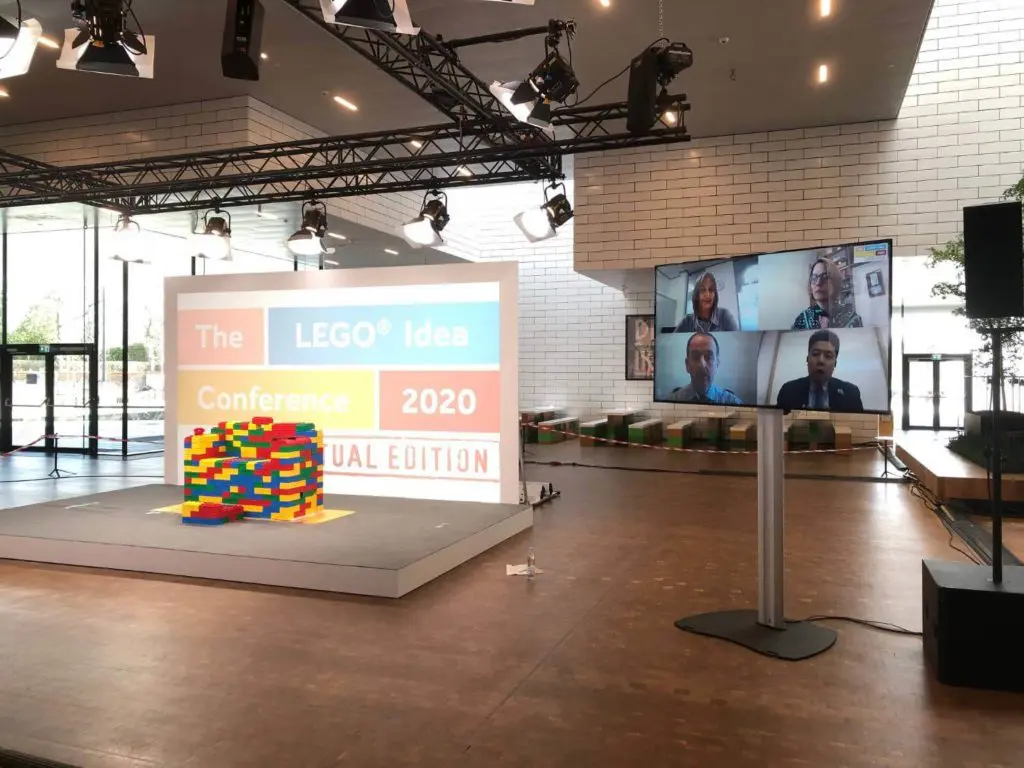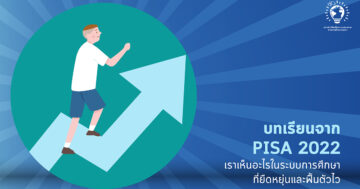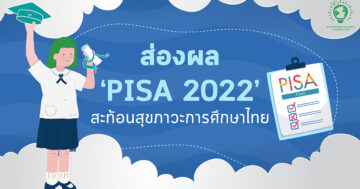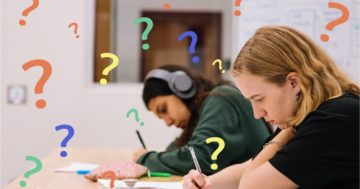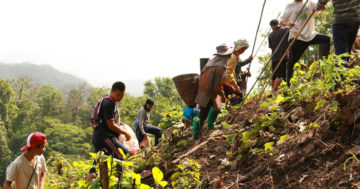The Equitable Education Fund (EEF), in collaboration with the LEGO Foundation working together with 5 world-class educational organizations, opens up experiences using measures to promote creative skills in children, adolescent and youth. This is to enhance systemic education reform, including educational equality and the manpower development into the 21st century labor market.
On March 10, 2020, the LEGO Foundation held a conference (Virtual-conference) with educational policy experts from 5 countries around the world, including Thailand, Australia, Japan, Scotland and Wales under the topic of “Creating Systems – how can education systems reform to enhance learners creativity skills?” It is the second report on creativity created by the Lego Foundation to study the ways to promote creativity in children, adolescent and youth around the world.
Dr. Kraiyos Patthrawat, Deputy Manager for the Equitable Education Fund (EEF), as the representative of Thailand, said that the Lego Foundation is considered as one of the internationally recognized learning organizations for a long time. The Lego Foundation’s annual conference or the “LEGO Idea Conference” is an important global conference that has a key role in defining reform and development of learning innovations in the educational system and human resource development at the international level. In this year, the theme for the conference was to focus on the promotion of creativity skills in the education system and human resource development. The Lego Foundation invited the representative organizations with outstanding performance and international recognition to promote creativity skills from around the world. Despite the obstacles from the corona virus outbreak which made it impossible to hold a meeting in Denmark as scheduled between 9-11 March, the Lego Foundation continues to coordinate with all speakers and attendees through the teleconference system via legoideaconference.net. One of the main topics in this meeting is to reform the education system to be able to promote the creativity skills of children, adolescent and youth efficiently and sustainably. The Lego Foundation invited 5 representatives from international education organizations from 5 countries, including Thailand, Australia, Japan, Scotland and Wales to participate in this meeting.
The Equitable Education Fund (EEF), as an invited representative from Thailand, shared our experience working with the OECD in researching, developing tools, promoting and evaluating creativity and critical thinking skills in 14 countries and 400 educational institutions throughout the country over the past 3 years. The issues that received the attention of the attendees were the use of tools to promote creativity skills in order to support the systemic reform process in both equality and quality in education simultaneously. Especially in the schools that participate in the research project, which is an opportunity school group that has many children, it is necessary to leave the education system after completing compulsory education to earn a living.
The creative thinking skills are one of the 3 skills of the 21st century that are most in demand in the global labor market including Thailand. According to the survey of employers almost all over the past 5-10 years, if children, adolescent and youth are encouraged to develop such skills at school age, it will be useful for both further education and careers. In addition, the creative thinking skills help to enhance the economic and social values of education that young people receive from the education system when they go out to work in the labor market. Therefore, if children, adolescent and youth in low-income families have developed such skills effectively. This will increase their chances of receiving compensation for these highly-needed skills from employers and the labor market, help to increase their income and help them lead their families out of poverty in the future.
Moreover, creative thinking skills are also very useful for the goal which has transformed the country from the middle-income country to become a developed country within 20 years of Thailand especially under the challenges of the aging society at present. If the new labor force tends to decrease the proportion but higher efficiency and competitiveness based on creative thinking skills, it will be useful for a stable and sustainable Thai economic growth in the future.
This is an important reason for the Thai government, under the leadership of the Ministry of Education in order to see the point of the significance for cooperation because it considers the creativity skills as one of the important skills that Thai people need today to step into quality labor and meet the job market in the future. The Equitable Education Fund (EEF) acts as an intermediary that coordinates with all parties from the Ministry of Education, government organizations, private organizations, academic departments from both domestic and abroad in implementing measures jointly with the OECD to enable Thai children to analyze and think creatively in order to support model schools that use tools to promote and assess creative and critical thinking skills in all classes of the school of the future. In this academic year 2020, the OBEC plans to support the expansion to 42 secondary educational service areas nationwide through the mechanism of educational supervisors and 2 leading educational institutions in each area, including in the area of educational innovation as a mechanism to expand further the country’s operations “said Dr. Kraiyos.
While Mr. John Goodwin, CEO of the LEGO Foundation, said that creativity considered an important factor for the country, economy and personnel. For the purpose of this event, it is intended to be a way and a starting point for the international community to reform the education system in their own country to promote creativity. By all knowledge and methods
that are broadcasted in the conference, there is no wrong or right. There is only suitable in accordance with the context of society and nature of the students only.

“The Lego Foundation sincerely hoped that the results of this study will be applied to be a tool to support reforms for creativity. That is a source of information and inspiration for educational reform guidelines, and it will inspire further research in creativity in the education industry, “said Mr. John.
Mr. John also said that this conference can be broken down into 10 key lessons that indicated success in reforms to develop creative skills as follows:
- Learning through play is an important factor that supports creativity.
- Efficient support is important in the dissemination of information and maintenance of agreements in the decision to reform.
- Partnerships between alliances and groups, other than government organizations, will strengthen and support the reform process.
- Sharing understanding, language, and the definition of creativity will help to apply to a wide range.
- International organizations can support the reform.
- Teachers and local leaders play a major role in the reform.
- A clearly written curriculum will guide students and teachers.
- The government sectors have a strong reason to focus on creativity.
- The school system development is considered an important principle and
- The evaluation is extremely important, but it can also be a challenge.

